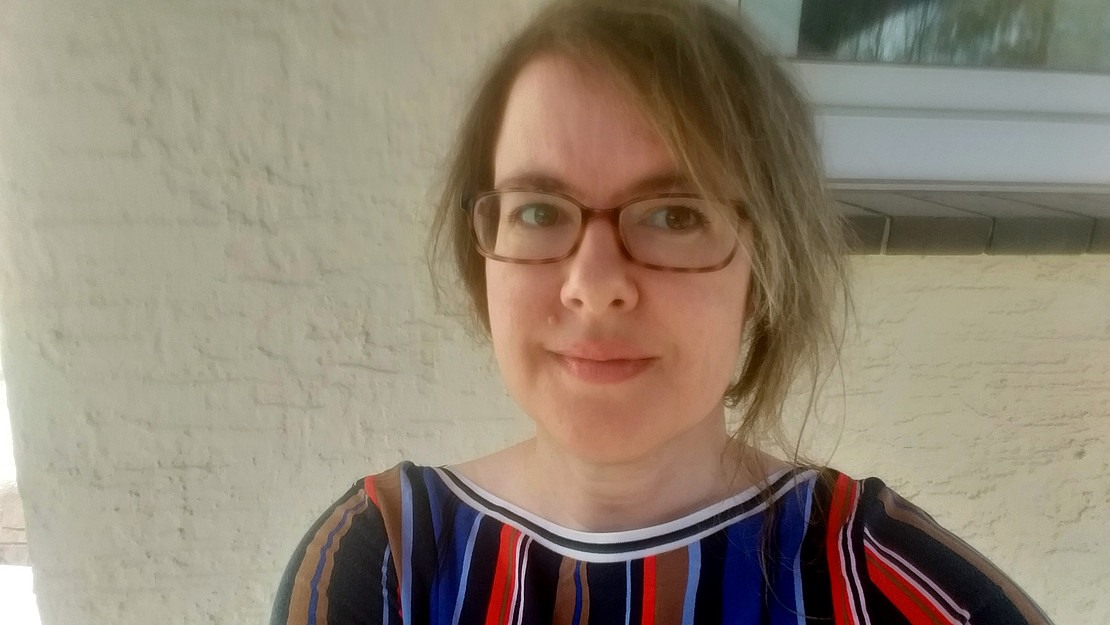The content on this page was translated automatically.
"This is a completely different situation"
 Image: Carolin Mantel-Görner.
Image: Carolin Mantel-Görner.Dr. Mantel-Görner, the summer semester is scheduled to start on April 20, initially in digital form. How are you preparing your teaching for this?
My focus in teaching is on the "seminar" format. Currently, I'm researching literature via the catalog portal KARLA (note: Kassel Research, Literature and Information Portal), which is available as an online resource to students at any time on the respective seminar topic or is available on the web as open access materials.
What is different about the preparation this time?
Since not every title I use for my courses is available online as full text, I research comparable materials. This summer semester, the plan is to create a bibliography exclusively of titles that home office students can use and that do not incur additional costs. This is a completely different situation for my seminar concepts, since, for example, the library plays a major role as a learning location in my courses, such as for term papers to deepen seminar topics or work assignments for literature research.
What programs, tools and aids do you use to prepare courses?
My central topic is "film education". For this, I plan to set up a "virtual seminar room" with the moodle platform, i.e. digital learning opportunities, with all the necessary information that the students need. The Service Center Teaching offers support for this. It is conceivable here to pose questions or tasks, to initiate a direct exchange with the students, to activate individual or group work or to provide further impulses such as videos, references to other databases, etc.. The site kinofenster.de or the Federal Agency for Civic Education also offer a pool of possible access points and materials on the topic of "film", which I will use.
How do you evaluate these possibilities for your teaching?
Challenging overall, considering that especially the first sessions of my seminar concept are learning-oriented, based on exchange, discussion, and sound introductions to the topic before students are given individual transfer opportunities.
Do you keep in touch with students, for example in the case of supervising a thesis? In what way do you communicate?
It is very important that advice and supervision continue on an ongoing basis, even and especially in this exceptional situation. As a thesis supervisor, I offer flexible office hours via e-mail to clarify questions with students and discuss possible uncertainties. The offer also applies to seminar participants from the last semester for whom questions have arisen regarding their seminar work and advice is needed. This works quite well.
What do you currently have to do without?
On the use of the library: it is an inspiring alternative to my office, and I really enjoy working there.
Is there anything educational for you personally from the current situation that you can take away for the future?
Basically, improvisation and flexibility are required for the home office, especially with two school-age children. There is always a solution to a problem, even if the circumstances are sometimes a bit difficult. For me personally, the current situation means refocusing on the essentials and setting new priorities.
Dr. Carolin Mantel-Görner teaches in the Department of School Education with a focus on school and classroom development at the University of Kassel.
Interview: Kristina Weissbecker and Christine Graß